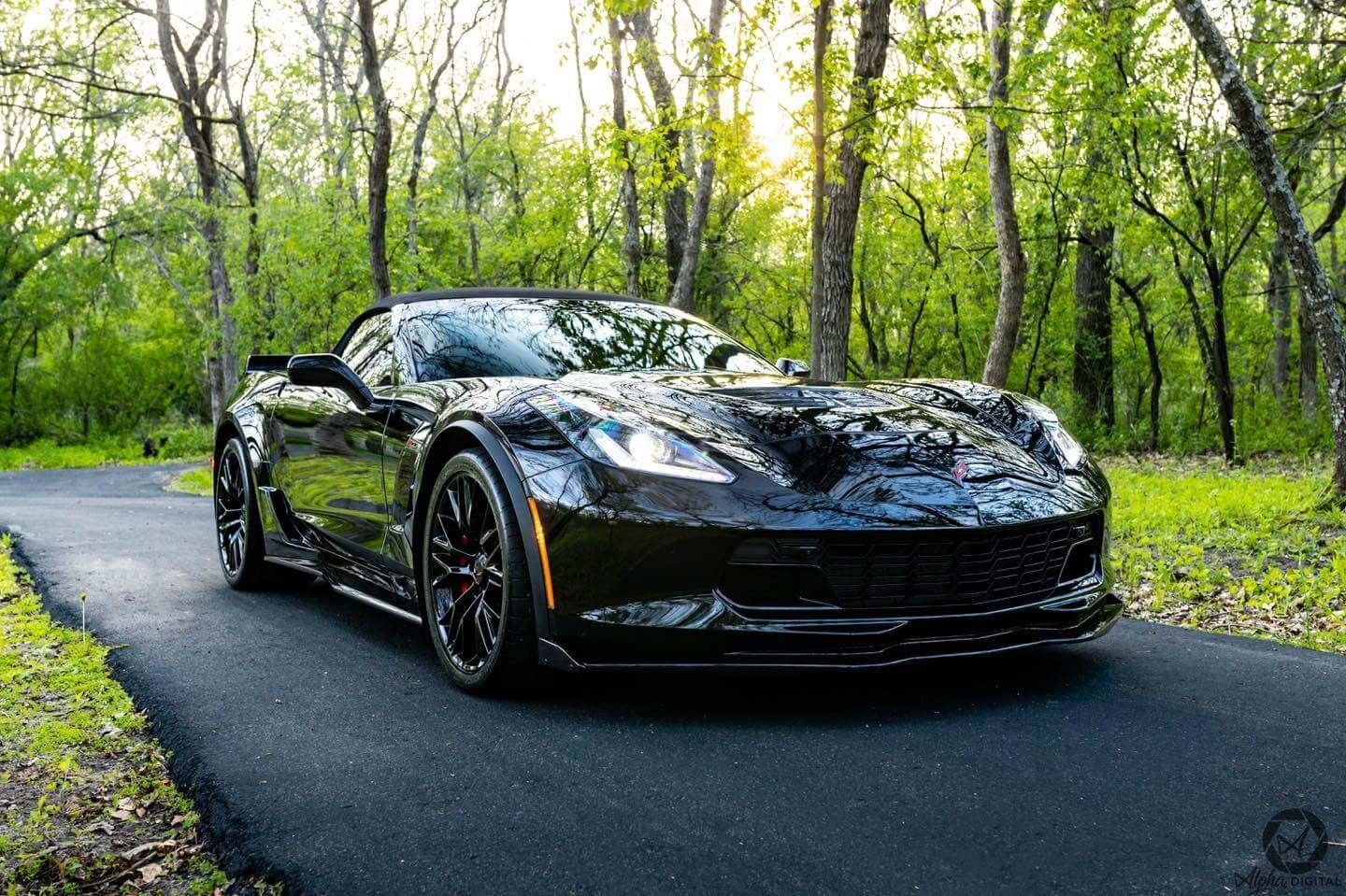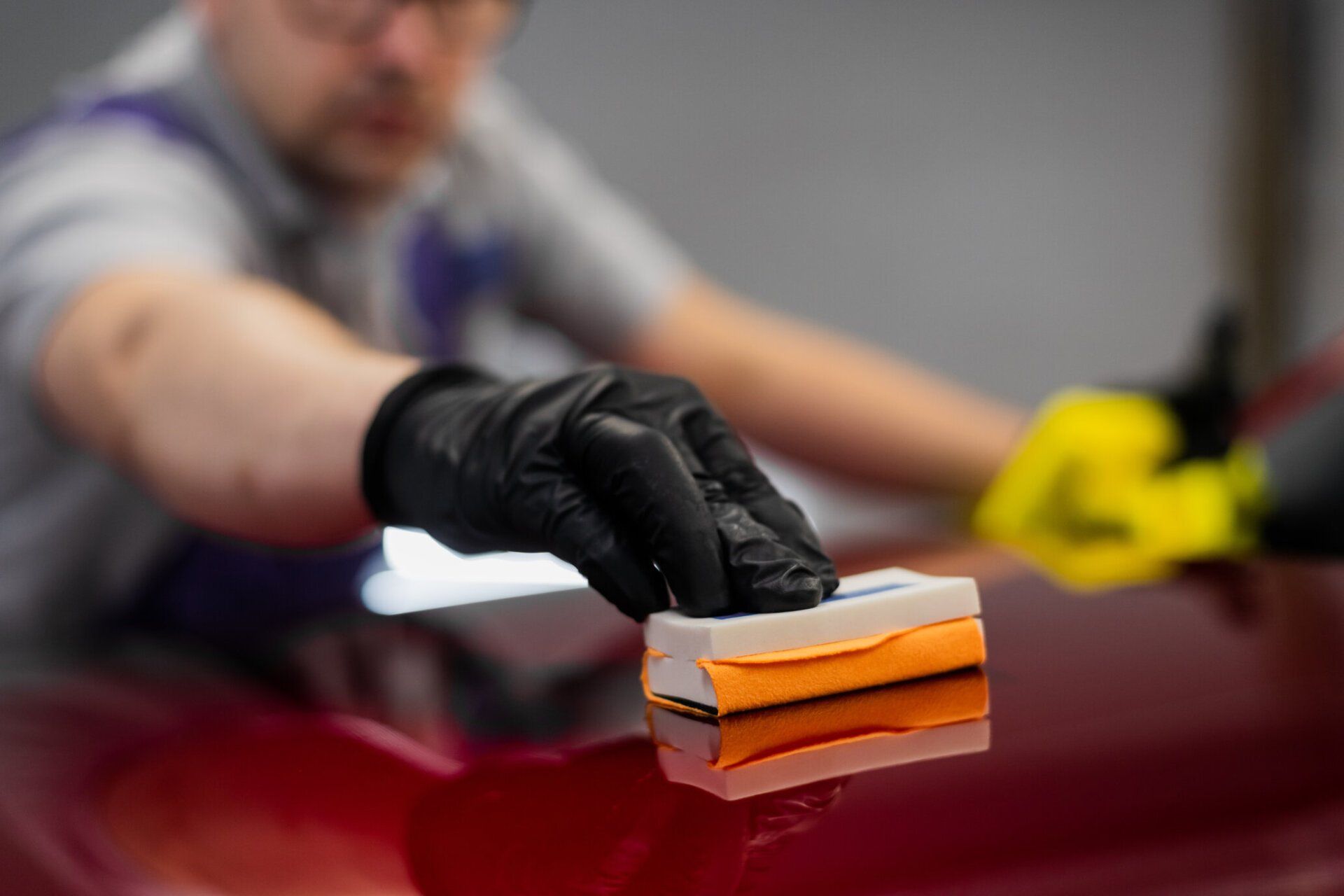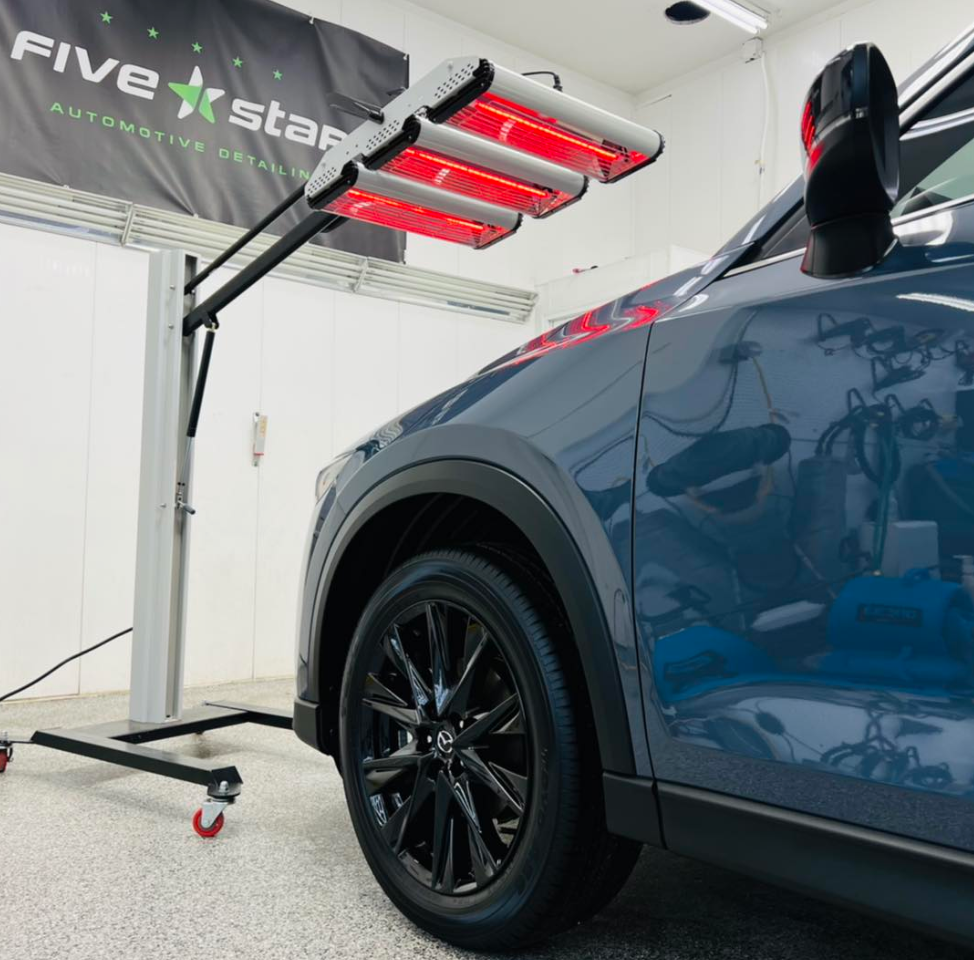The Secret Benefits of Auto Detailing: Secrets Every Car Owner Should Know
BOOK NOWHidden Automotive Detailing Benefits Car Owners Should Know
It's no surprise that every car owner cherishes the idea of a clean, shiny, and spotless vehicle. But have you ever thought about what lies beyond the visual appeal of your car? The truth is that there are more perks to automotive detailing than meets the eye, and these undiscovered advantages can significantly increase the longevity and resale value of your vehicle.
Let us look at some of the lesser-known but significant benefits of professional auto detailing that every car owner should be aware of!
Professional Detailing Increases Vehicle's Value
The process of detailing does more than simply make it look nice; it also helps to preserve and increase its overall worth. By investing in quality detailing services, you can significantly boost the value of your vehicle and ensure it stays in top-notch condition for years to come.
Potential buyers will see that you have maintained your vehicle well by having a professional detail it on a regular basis. This perception leads to an increased resale value, making it a wise investment in the long run.
Increasing Resale Value through Preservation
The overall condition of an automobile is one of the most important aspects in determining its resale value; a vehicle that has been properly maintained is more likely to command a better price when it is put up for sale than a vehicle that exhibits signs of neglect. This is where expert car care shines in preserving your car's condition and maximizing its resale value.
When you opt for professional detailing services, experts pay attention to every detail, ensuring that even hard-to-reach areas are thoroughly cleaned and restored.
This care enhances aesthetics and prevents wear and tear from UV rays, harsh weather, and contaminants. In addition to regular auto detailing, various treatments, such as paint sealants and protective coatings, are included. These treatments offer an additional layer of defense against scratches, fading, and oxidation.
By preserving the exterior finish and maintaining the interior upholstery, you create a lasting impression of a well-maintained vehicle, which can significantly increase its resale value.
For example, let us consider two cars that are very similar, with identical mileage and maintenance records, both of which are being put up for sale. However, one car has been regularly professionally detailed, while the other has not received any significant upkeep. Potential buyers will naturally be inclined to choose the car that appears cleaner, fresher, and better cared for.
As a result, the detailed car will have a higher perceived value and command a higher price in the resale market.
Taking the time and investment to prioritize detailing not only benefits you during your ownership but also pays off when it comes time to sell or trade your vehicle. It's a smart step towards maximizing your
return on investment
(ROI) and ensuring that your car retains its value over time.
Underbody Car Cleaning & Maintenance
While many car owners focus on keeping the exterior and interior of their vehicles clean, one area that often gets neglected is the underbody.
However, underbody cleaning and maintenance play a crucial role in extending the lifespan of your car and ensuring optimal performance. The underbody is exposed to various elements, such as dirt, salt, and debris, which can lead to corrosion and damage if left unchecked.
By regularly cleaning and maintaining the underbody, you can prevent rust formation, protect vital components, and enhance the overall condition of your vehicle.
Proper underbody cleaning involves thoroughly washing away dirt, mud, and other contaminants that accumulate over time.
This can be done by using a high-pressure water spray or by taking your car to a professional detailer who has the necessary tools and expertise. Special attention should be given to areas like the wheel wells, suspension components, exhaust systems, and chassis.
In addition to cleaning, regular underbody maintenance is also essential.
This includes inspecting for any signs of rust or damage and addressing them promptly. Applying an underbody protective coating can further shield against potential corrosion.
By incorporating underbody cleaning and maintenance into your car care routine, you can prevent costly repairs down the line and preserve the longevity of your vehicle.
This includes inspecting for any signs of rust or damage and addressing them promptly. Applying an underbody protective coating can further shield against potential corrosion. By incorporating underbody cleaning and maintenance into your car care routine, you can prevent costly repairs down the line and preserve the longevity of your vehicle.
Effects of Consistent Vehicle Detailing on Efficiency
When it comes to car maintenance, many people primarily associate detailing with enhancing the appearance of their vehicles. While it's true that regular detailing can make your car look almost like new, its benefits go beyond aesthetics. In fact, regular detailing can have a significant impact on the overall performance of your vehicle.
Imagine that you have not detailed your automobile in a while. The exterior is dirty, the interior is full of junk, and even the engine bay is neglected. Imagine taking this car to a professional detailer who performs a comprehensive detailing service.
The transformation is remarkable, not only in terms of appearance but also in how the car drives and feels on the road.
Think of regular detailing as giving your car a "spa day." Just as you feel rejuvenated after a spa treatment, your car also benefits from the attention and care it receives during the detailing process. The process of detailing involves cleaning, polishing, and protecting every nook and cranny of your vehicle. This includes areas such as the engine bay, wheels, upholstery, and even hard-to-reach spots.
By paying attention to these details, professional auto detailers can improve the performance of your vehicle in several ways.
For example, cleaning and conditioning the interior surfaces not only enhances their appearance but also helps maintain their quality and durability. Regularly cleaning the engine bay removes dirt and debris that can hamper its performance, allowing it to run more efficiently and reducing potential issues down the line.
Furthermore, by using specialized tools and techniques, detailers can improve aerodynamics by removing built-up dirt and contaminants from exterior surfaces. This reduces drag and improves fuel efficiency.
Regular car detailing is an investment that will pay dividends in the form of a spotless vehicle and peak motorsport performance. It is a win-win that improves driving and vehicle longevity.
Engine Maintenance and Noise Reduction
When it comes to car detailing, many car owners might not realize the hidden benefits that go beyond just aesthetics. An essential aspect of car maintenance that is often overlooked is engine care.
Professional car detailing involves not only cleaning the exterior and interior of the vehicle but also taking care of the engine compartment.
Regular engine maintenance is crucial for keeping your car running smoothly and efficiently. During the detailing process, professional detailers will carefully clean the engine bay, removing dirt, grime, and debris that may have accumulated over time.
This not only improves the overall appearance but also helps prevent potential engine problems.
By having a clean engine compartment, it becomes easier to spot any leaks or issues that may arise. This allows for early detection and timely repairs, preventing more significant problems down the line.
In addition, a clean engine can also contribute to better heat dissipation, preventing overheating and potential damage to sensitive components.
Another notable benefit of regular professional car detailing is noise reduction. A clean engine allows for smoother operation, reducing unnecessary vibrations and noises that can occur due to dirt buildup or loose parts.
With a quieter-running engine, both the driver and passengers can enjoy a more pleasant driving experience.
In addition to cleaning, professional detailers may also apply specialized products or coatings to further protect the engine from contaminants or corrosion.
These products provide an additional layer of defense against environmental factors, extending the longevity of your engine's performance.
It's important for car owners to understand that regular engine maintenance goes hand in hand with overall car care.
By including engine cleaning as part of your routine car detailing, you not only enhance the lifespan of your vehicle but also ensure a smoother and quieter driving experience.
Think of it like taking care of your body. Just as regular exercise and healthy eating habits promote a well-maintained body, regular engine maintenance through professional car detailing promotes a well-maintained vehicle.
Get in Touch With Five Star Automotive Detailing If You Need Premium Vehicle Detailing Services!
Automotive detailing has several secret perks that many people may not be aware of. Professional auto detailing can make your car look almost like new by taking care of all the small details and hard-to-reach areas.
Additionally, car detailing can increase your car's resale value by keeping it in top condition.
Come to our auto detailing shop if you want your automobile to look more than just shine; we will breathe fresh life into every curve and crevice of your vehicle. Make your selection with care and accuracy.
Choose the pinnacle of precision and care. Choose
Five Star Automotive Detailing!
Give us a call today for more details and to get a
free estimate!






